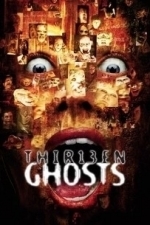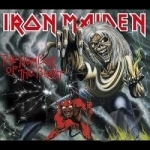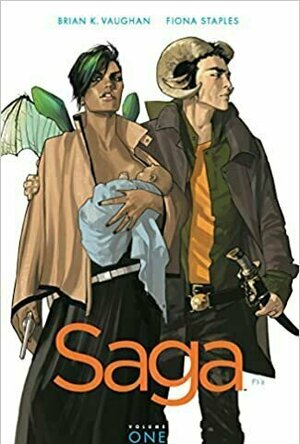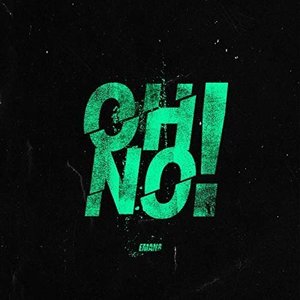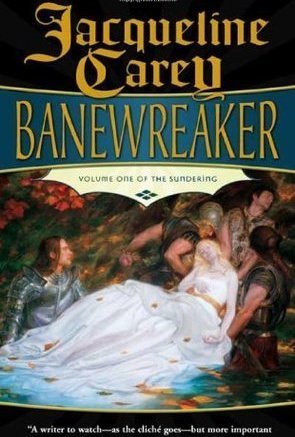Search
Search results
LeftSideCut (3776 KP) rated Thir13en Ghosts (2001) in Movies
Jun 30, 2021
I absolutely get why this has become a bit of a cult classic, but for everything I like about Thir13en Ghosts, there's something I dislike.
I enjoy the setting. The "modern day" haunted house is an inspired design, and the fact that the set was practically built to film on is quite something. I also enjoy the titular ghosts. Each one has a unique look, and the make up work is superb. I also love that the legendary F. Murray Abraham is in this, as well as Matthew Lillard, doing what Matthew Lillard does best, hamming things up to the max.
Other than that, it's all a bit flaccid. There's a whole lot of characters-walking-around-and-getting-lost going on, and it's honestly a drag. It doesn't help that precisely none of these characters are easy to care about. There are multiple instances of laughably huge exposition dumps, in a narrative that's needlessly overstuffed with unnecessary plot elements.
Personally, it just about coasts by due to the nostalgia of being 13 years old and just getting into horror when it originally released, and I always have a good enough time with it. Also a dude gets vertically bisected which is pretty rad.
I enjoy the setting. The "modern day" haunted house is an inspired design, and the fact that the set was practically built to film on is quite something. I also enjoy the titular ghosts. Each one has a unique look, and the make up work is superb. I also love that the legendary F. Murray Abraham is in this, as well as Matthew Lillard, doing what Matthew Lillard does best, hamming things up to the max.
Other than that, it's all a bit flaccid. There's a whole lot of characters-walking-around-and-getting-lost going on, and it's honestly a drag. It doesn't help that precisely none of these characters are easy to care about. There are multiple instances of laughably huge exposition dumps, in a narrative that's needlessly overstuffed with unnecessary plot elements.
Personally, it just about coasts by due to the nostalgia of being 13 years old and just getting into horror when it originally released, and I always have a good enough time with it. Also a dude gets vertically bisected which is pretty rad.
Jerry Cantrell recommended Number of the Beast by Iron Maiden in Music (curated)
Joe Goodhart (27 KP) rated Saga in Books
Nov 30, 2020
I'm old! Like I've pro'lly been reading comics for way too long (I was there the first time Jean Grey died)! But, when I say this what I consider one of the best comics EVER, I am behind that statement 100%!
Brian K. Vaughn has created an amazing story, with characters that are far from perfect but at the same time have merit and worth. It is clear that a lot of time went into the creations of each of the characters introduced, as well as the various settings. Long story short? This dude is a frigging GENIUS! Just sayin'..
And hey, how about those visuals from series artist Fiona Staples? Man, those covers she turns in are ridiculously rich in detail, but the inside stuff? Dear God, she has it goin' on! While I have some love for a number of Marvel characters, I am glad that Marvel never tried to lure her in, because she is far too good for them!
I could go on and on about the series and how good it is, but well, there's a more than fair number of users on here have said it better. Let's just leave it at this: Best.Comic.EVER! Now, scoot, go read it already!!
Brian K. Vaughn has created an amazing story, with characters that are far from perfect but at the same time have merit and worth. It is clear that a lot of time went into the creations of each of the characters introduced, as well as the various settings. Long story short? This dude is a frigging GENIUS! Just sayin'..
And hey, how about those visuals from series artist Fiona Staples? Man, those covers she turns in are ridiculously rich in detail, but the inside stuff? Dear God, she has it goin' on! While I have some love for a number of Marvel characters, I am glad that Marvel never tried to lure her in, because she is far too good for them!
I could go on and on about the series and how good it is, but well, there's a more than fair number of users on here have said it better. Let's just leave it at this: Best.Comic.EVER! Now, scoot, go read it already!!
Bong Mines Entertainment (15 KP) rated Oh No! - Single by EMAN8 in Music
Jul 10, 2019
EMAN8 (Brandyn Burnette) is an LA-based artist from Saint Louis, MO. Not too long ago, he released a groovy urban pop tune, entitled, “Oh No!”.
“Baby, you so sick you make me nausea. Please forgive me I’m just being cautious. I know that you got a couple of options. Lately, you’ve been checking all my boxers. All my homies told me not to fall for it. Put me on the court and I’ma ball for it. I just need to know if you are all in. I know that you’re drunk that’s why you’re calling.” – lyrics
‘Oh No!’ tells an interesting tale of a young guy who has high hopes for a problematic relationship which he shares with his significant other.
Apparently, he can’t believe what she tells him and can’t decipher if it’s a nightmare or dream that he has fallen deeply into.
Later, he admits that this was everything he ever wanted, but every day feels like it’s haunted.
‘Oh No!’ contains a cautionary storyline, harmonious vocals, and groovy instrumentation flavored with urban R&B and hip-hop elements.
EMAN8 hopes to emanate the true authentic vibration of his experiences, soundscapes, and songwriting.
His name comes from his Jamaican middle name “Emanate”, which means to come forth.
“Baby, you so sick you make me nausea. Please forgive me I’m just being cautious. I know that you got a couple of options. Lately, you’ve been checking all my boxers. All my homies told me not to fall for it. Put me on the court and I’ma ball for it. I just need to know if you are all in. I know that you’re drunk that’s why you’re calling.” – lyrics
‘Oh No!’ tells an interesting tale of a young guy who has high hopes for a problematic relationship which he shares with his significant other.
Apparently, he can’t believe what she tells him and can’t decipher if it’s a nightmare or dream that he has fallen deeply into.
Later, he admits that this was everything he ever wanted, but every day feels like it’s haunted.
‘Oh No!’ contains a cautionary storyline, harmonious vocals, and groovy instrumentation flavored with urban R&B and hip-hop elements.
EMAN8 hopes to emanate the true authentic vibration of his experiences, soundscapes, and songwriting.
His name comes from his Jamaican middle name “Emanate”, which means to come forth.
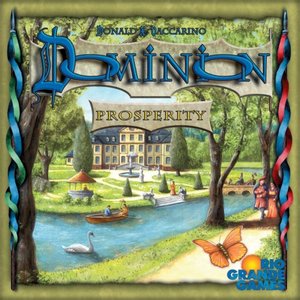
Dominion: Prosperity
Tabletop Game
Ah, money. There's nothing like the sound of coins clinking in your hands. You vastly prefer it to...
Debbiereadsbook (1633 KP) rated Andalusia Dogs (Haunted Hearts: Season of the Witch) in Books
Dec 12, 2025
not sure this was for me
Independent reviewer for Archaeolibrarian, I was gifted my copy of this book.
I will be honest, I don't usually read other reviews before I write mine. But I did here. I wanted to see if anyone else was struggling with what I did. But it appears that what I struggled with, every one else loved and had expected it of this author, who I have not read before.
Let me try to explain.
I could not see where this was going, at all. And that is a good thing. I do like being kept on my toes.
BUT I'm still not sure what actually happened when it all went down! I'm confused by it all, I have no clue what it was about, apart from a witch moving from body to body? Maybe? I'm not entirely sure what Joanna was, either. A vampire maybe? I dunno.
I actually liked that only Alex had a say, I think putting Jago into the mix would have confused me even more. Especially when it becomes (somewhat) clear that Jago is not just Jago, you know??
So, I think, I just didn't get it! But I did finish it, so . .
3 stars
*same worded review will appear elsewhere
I will be honest, I don't usually read other reviews before I write mine. But I did here. I wanted to see if anyone else was struggling with what I did. But it appears that what I struggled with, every one else loved and had expected it of this author, who I have not read before.
Let me try to explain.
I could not see where this was going, at all. And that is a good thing. I do like being kept on my toes.
BUT I'm still not sure what actually happened when it all went down! I'm confused by it all, I have no clue what it was about, apart from a witch moving from body to body? Maybe? I'm not entirely sure what Joanna was, either. A vampire maybe? I dunno.
I actually liked that only Alex had a say, I think putting Jago into the mix would have confused me even more. Especially when it becomes (somewhat) clear that Jago is not just Jago, you know??
So, I think, I just didn't get it! But I did finish it, so . .
3 stars
*same worded review will appear elsewhere
Mandy and G.D. Burkhead (26 KP) rated Banewreaker in Books
May 20, 2018
Shelf Life – Banewreaker Will Make You Feel Bad for Sauron
Contains spoilers, click to show
Very few fantasy fans can get away with admitting that they aren’t all that big into sweeping, high epic fantasy à la Lord of the Rings or the Pern stories or everything that Terry Brooks writes. Many non-fantasy fans, however, can point to these tales as examples of why they aren’t into fantasy. Like it or not, it’s hard not to see the latter group’s point, as a lot of high fantasy is riddled with confusing terminology, rehashed stories, and genre clichés. This is not to say that these stories are bad, per sé, just that they can easily turn off readers who aren’t in the right kind of crowd.
Banewreaker, the first book in Jacqueline Carey’s two-part volume The Sundering, will probably not change any opinions in this respect, then, as it’s sweeping high fantasy to the core. This, as it turns out, is both its greatest strength and its greatest weakness.
There are some reviews out there that laud Banewreaker as a masterful examination of subjective viewpoints in an epic fantasy turned into a human tragedy by a simple change of perspective. And they are absolutely correct.
There are other reviews, however, that call the book out as a heap of all of the stalest fantasy clichés piled one atop the other in a confusing and pretentious jumble with a shellacking of purple prose for good measure. And they are also absolutely correct.
Let me explain.
For starters, it would be inaccurate to say that this story is full of clichés. This story is clichés. This story is every familiar and used-up trope you would expect from a high fantasy, all of those details that have been done to death in thousands of other versions until almost nothing that happens seems original anymore.
This is what’s going to turn off a lot of people. But the thing is, Banewreaker has to be this way. It wants the reader to look at all of the things that they’ve come to expect from a fantasy epic and then, by shifting the narrative focus, realize that all of these beloved tropes are actually, when you think about it, tragic as hell.
In other words, it’s Lord of the Rings from Sauron’s point of view.
It’s not a riff, though. It’s not goofy like most of the stuff I go in for. It takes its subject just as seriously as the stories that it’s mirroring, and this is what makes the whole story ultimately so gripping and so moving.
The story starts out like many stories of this magnitude, with exposition stretching back to the Dawn of This Particular Creation. In this case, we have a protogenos world god named Uru-Alat who died and gave rise to seven smaller godlike beings called Shapers. First comes Haomane, who becomes the Lord of Thought and sets himself up as head honcho for this ensuing pantheon. Second is Arahila, the Basically a Love Goddess; and third is Satoris, whose purview was “the quickening of the flesh,” which is high fantasy speak for sexy times. Four more Shapers come after this who, for the sake of brevity, we’ll be glossing over.
To summarize the important godly exposition, the Seven Shapers set about shaping the world to the surprise of no one. Haomane creates elves (here called Ellyl, but if you’ve ever even looked at a fantasy, you know that they’re the elves here), Arahila creates humans, and Satoris doesn’t create anything because he’s busy hanging out with dragons and learning their wisdom. Satoris grants his fleshy quickening to the humans but not the elves, because Haomane didn’t want his elves to do that. Then Haomane decides he doesn’t want the humans to do that either, but Satoris refuses to take the gift away again. Conflict escalates, god wars ensue, and the world splits into two continents, with Satoris ostracized from his brethren on one and the remaining Shapers on the other. By the time the dust has settled, Satoris is scarred and burned pitch black, living in a mostly dead land thanks to Haomane’s wrath, but with a dagger in his possession that is the only weapon capable of killing any of the Shapers.
The story itself picks up thousands of years later, with Satoris as the Satan/Sauron stand-in living in a forbidding land surrounded by classically evil things like trolls, giant spiders, and insane people. Since Haomane is the head god, the rest of the world believes Satoris to be a terrible figure of evil and betrayal, while Satoris’s few allies know him as a pitiable and misunderstood figure who only ever wanted to honor his word and do right by his own sense of morality rather than the dictates of his elder brother god king.
From here the plot becomes the typical Army of Good vs. Army of Evil adventure, but with the protagonistic focus on Satoris and his allies. His trolls we see not as a mindless horde but as a simple, honorable people who happily serve their lord because he happily serves them right back. The mad individuals inhabiting his fortress are castaways from normal society with nowhere else to go. And the giant spiders just happen to live there and be bigger than normal, with no sinister intentions beyond that.
And just like that, by actually showing us the home life of the ultimate in evil fantasy tropes, we see how easily one side’s view of evil is another’s view of good. In doing so, Banewreaker becomes perhaps the first sweeping fantasy epic with no real bad guy, just two sides of an unfortunate conflict. Both sides have their likeable characters, both sides seem from their view to be in the right, and pretty soon you, as the reader, will stop cheering for either one, because whenever one person that you like succeeds it means that another person whom you also like is failing.
In fact, the closest thing that this story has to a clearly-labeled “evil” character is the sorceress Lilias, and even then, she’s not evil so much as a woman who has done some bad things for completely understandable reasons. Lilias, in fact, is one of the most pitiful characters in this whole saga of pitiable characters, with her fears and attachments closely mirroring those of most readers, only amplified by her immortality and magical powers. She is afraid of dying. She wants to be more in the grand scheme of things than just another man’s wife or another country’s momentary ruler, both of which would just be tiny moments in a long history. She likes her youth. She likes having pretty things and pretty people around her. And from her interactions with her dragon mentor and apparently only friend, Calandor, we see that she is also capable of intense affection and even love just as she is capable of indulging in self-centered self-interest that, if not particularly a good trait, is also one that she is not alone in possessing.
Banewreaker, then, is a story with a large cast of characters but very few actual heroes or innocents as well as very few outright villains, which is exactly what it sets out to be. Those who love it and those who hate it both seem to blame this quality in particular for their feelings. The biggest complaint leveled against it (that I have read, anyway) is that the people we should be rooting for do not deserve our sympathy, while the people we should be rooting against are more misguided and unwilling to see things in another light than deserving of our scorn.
This is true. But if it’s a flaw, it’s an intentional one. And if it makes you feel like you shouldn’t be cheering for either side at all in this conflict, that’s the point. This is a story of clichés, yes, but it has something that it needs to say about these clichés and, in doing so, about the subjective and impossibly nebulous quality of morality in general.
In short, here again is another fantasy story about the Forces of Good wiping out an entire nation dedicated to their “evil” enemy. And as the story points out, even if you believe in that cause, you’re still wiping out an entire nation of people. No way is there not a downside to that. Seeing things in a black-and-white morality just means crushing a whole lot of important shades of gray underfoot.
Whether or not you like Banewreaker, then, depends in large part upon how much you realize that Carey as an author is being self-aware. As someone who read and still hasn’t stopped being awed over her Kushiel series, I can’t claim complete objectivity in this area, because I came to Banewreaker already in love with her. I can say, however, that unless you have an intense and searing aversion to ornate and sweeping style, this book is worth any fantasy-lover’s time – especially if you’ve ever felt a pang of empathy for all of the poor villainous mooks that fantasy heroes tend to mow down without a thought because they were the wrong kind of ugly.
Banewreaker, the first book in Jacqueline Carey’s two-part volume The Sundering, will probably not change any opinions in this respect, then, as it’s sweeping high fantasy to the core. This, as it turns out, is both its greatest strength and its greatest weakness.
There are some reviews out there that laud Banewreaker as a masterful examination of subjective viewpoints in an epic fantasy turned into a human tragedy by a simple change of perspective. And they are absolutely correct.
There are other reviews, however, that call the book out as a heap of all of the stalest fantasy clichés piled one atop the other in a confusing and pretentious jumble with a shellacking of purple prose for good measure. And they are also absolutely correct.
Let me explain.
For starters, it would be inaccurate to say that this story is full of clichés. This story is clichés. This story is every familiar and used-up trope you would expect from a high fantasy, all of those details that have been done to death in thousands of other versions until almost nothing that happens seems original anymore.
This is what’s going to turn off a lot of people. But the thing is, Banewreaker has to be this way. It wants the reader to look at all of the things that they’ve come to expect from a fantasy epic and then, by shifting the narrative focus, realize that all of these beloved tropes are actually, when you think about it, tragic as hell.
In other words, it’s Lord of the Rings from Sauron’s point of view.
It’s not a riff, though. It’s not goofy like most of the stuff I go in for. It takes its subject just as seriously as the stories that it’s mirroring, and this is what makes the whole story ultimately so gripping and so moving.
The story starts out like many stories of this magnitude, with exposition stretching back to the Dawn of This Particular Creation. In this case, we have a protogenos world god named Uru-Alat who died and gave rise to seven smaller godlike beings called Shapers. First comes Haomane, who becomes the Lord of Thought and sets himself up as head honcho for this ensuing pantheon. Second is Arahila, the Basically a Love Goddess; and third is Satoris, whose purview was “the quickening of the flesh,” which is high fantasy speak for sexy times. Four more Shapers come after this who, for the sake of brevity, we’ll be glossing over.
To summarize the important godly exposition, the Seven Shapers set about shaping the world to the surprise of no one. Haomane creates elves (here called Ellyl, but if you’ve ever even looked at a fantasy, you know that they’re the elves here), Arahila creates humans, and Satoris doesn’t create anything because he’s busy hanging out with dragons and learning their wisdom. Satoris grants his fleshy quickening to the humans but not the elves, because Haomane didn’t want his elves to do that. Then Haomane decides he doesn’t want the humans to do that either, but Satoris refuses to take the gift away again. Conflict escalates, god wars ensue, and the world splits into two continents, with Satoris ostracized from his brethren on one and the remaining Shapers on the other. By the time the dust has settled, Satoris is scarred and burned pitch black, living in a mostly dead land thanks to Haomane’s wrath, but with a dagger in his possession that is the only weapon capable of killing any of the Shapers.
The story itself picks up thousands of years later, with Satoris as the Satan/Sauron stand-in living in a forbidding land surrounded by classically evil things like trolls, giant spiders, and insane people. Since Haomane is the head god, the rest of the world believes Satoris to be a terrible figure of evil and betrayal, while Satoris’s few allies know him as a pitiable and misunderstood figure who only ever wanted to honor his word and do right by his own sense of morality rather than the dictates of his elder brother god king.
From here the plot becomes the typical Army of Good vs. Army of Evil adventure, but with the protagonistic focus on Satoris and his allies. His trolls we see not as a mindless horde but as a simple, honorable people who happily serve their lord because he happily serves them right back. The mad individuals inhabiting his fortress are castaways from normal society with nowhere else to go. And the giant spiders just happen to live there and be bigger than normal, with no sinister intentions beyond that.
And just like that, by actually showing us the home life of the ultimate in evil fantasy tropes, we see how easily one side’s view of evil is another’s view of good. In doing so, Banewreaker becomes perhaps the first sweeping fantasy epic with no real bad guy, just two sides of an unfortunate conflict. Both sides have their likeable characters, both sides seem from their view to be in the right, and pretty soon you, as the reader, will stop cheering for either one, because whenever one person that you like succeeds it means that another person whom you also like is failing.
In fact, the closest thing that this story has to a clearly-labeled “evil” character is the sorceress Lilias, and even then, she’s not evil so much as a woman who has done some bad things for completely understandable reasons. Lilias, in fact, is one of the most pitiful characters in this whole saga of pitiable characters, with her fears and attachments closely mirroring those of most readers, only amplified by her immortality and magical powers. She is afraid of dying. She wants to be more in the grand scheme of things than just another man’s wife or another country’s momentary ruler, both of which would just be tiny moments in a long history. She likes her youth. She likes having pretty things and pretty people around her. And from her interactions with her dragon mentor and apparently only friend, Calandor, we see that she is also capable of intense affection and even love just as she is capable of indulging in self-centered self-interest that, if not particularly a good trait, is also one that she is not alone in possessing.
Banewreaker, then, is a story with a large cast of characters but very few actual heroes or innocents as well as very few outright villains, which is exactly what it sets out to be. Those who love it and those who hate it both seem to blame this quality in particular for their feelings. The biggest complaint leveled against it (that I have read, anyway) is that the people we should be rooting for do not deserve our sympathy, while the people we should be rooting against are more misguided and unwilling to see things in another light than deserving of our scorn.
This is true. But if it’s a flaw, it’s an intentional one. And if it makes you feel like you shouldn’t be cheering for either side at all in this conflict, that’s the point. This is a story of clichés, yes, but it has something that it needs to say about these clichés and, in doing so, about the subjective and impossibly nebulous quality of morality in general.
In short, here again is another fantasy story about the Forces of Good wiping out an entire nation dedicated to their “evil” enemy. And as the story points out, even if you believe in that cause, you’re still wiping out an entire nation of people. No way is there not a downside to that. Seeing things in a black-and-white morality just means crushing a whole lot of important shades of gray underfoot.
Whether or not you like Banewreaker, then, depends in large part upon how much you realize that Carey as an author is being self-aware. As someone who read and still hasn’t stopped being awed over her Kushiel series, I can’t claim complete objectivity in this area, because I came to Banewreaker already in love with her. I can say, however, that unless you have an intense and searing aversion to ornate and sweeping style, this book is worth any fantasy-lover’s time – especially if you’ve ever felt a pang of empathy for all of the poor villainous mooks that fantasy heroes tend to mow down without a thought because they were the wrong kind of ugly.
Joelene Marie (28 KP) rated The Song of the Quarkbeast (The Last Dragonslayer, #2) in Books
Oct 1, 2018
Another fun fantasy adventure that picks up right after the events of The Last Dragonslayer. I just love the world Jasper Fforde has built here and the characters feel like old friends. Oh, and I really want a quarkbeast!! My main complaint with this one, and from the little I've read of the third one, is a lack of continuity in places. Dragonslayer is set in the "capital city of Hereford in the kingdom of the same name" whose monarch is the nefarious King Snod. When Quarkbeast begins and Jennifer is summarizing the details of her world and the events of Dragonslayer the kingdom name has changed from Hereford to Snod with no explanation. This kinda threw me a bit, things like that are a pet peeve of mine, but I decided to overlook it. Then I finish this one and start the sample of book three and it happened again, the end of Quark and the beginning of the Eye of Zoltar don't match up. At the end of Quark Jennifer talks about all the repairs they made to zambini towers and in the beginning of Zoltar she says they didn't happen. Im not sure if it was intentional or just bad editing but it's a bit irritating in an otherwise wonderful series.
James Koppert (2698 KP) rated Lil Pump by Lil Pump in Music
Oct 19, 2019 (Updated Nov 9, 2019)
Gross
This is bad, not in usual Hip Hop terms as in "I just spat a bad ass rhyme", no, this is bad as in wack.
Lil Pump has rose to meteoritic fame and wealth and the reason why? His stuff speaks to kids of that age where swearing and talking about drugs upsets mummy and daddy.
This is mumble rap. I'm not hating on mumble rap, Some artists are artists. Pump however shouts a line, then says Ouu and then repeats the formula the entire album Ouu.
So we've established he can't rap, lyrically it's just offensive. Now I have a lot of horribly misogynistic hip hop but somehow this feels worse because there is no artistic element. Lil Pump shouts things like "I f##ked your daughter" Ouu, yeah, that is the base level, women are nothing but botches to abide and drugs are new and clever according to Pump. It really is playground level.
What about the beats? Ok anyone knows my output knows I sometimes play with distortion but Pump takes it up so it distorts and the base blows and I bet he giggles like a toddler and goes "that's great Ouu".
Utterly terrible
Lil Pump has rose to meteoritic fame and wealth and the reason why? His stuff speaks to kids of that age where swearing and talking about drugs upsets mummy and daddy.
This is mumble rap. I'm not hating on mumble rap, Some artists are artists. Pump however shouts a line, then says Ouu and then repeats the formula the entire album Ouu.
So we've established he can't rap, lyrically it's just offensive. Now I have a lot of horribly misogynistic hip hop but somehow this feels worse because there is no artistic element. Lil Pump shouts things like "I f##ked your daughter" Ouu, yeah, that is the base level, women are nothing but botches to abide and drugs are new and clever according to Pump. It really is playground level.
What about the beats? Ok anyone knows my output knows I sometimes play with distortion but Pump takes it up so it distorts and the base blows and I bet he giggles like a toddler and goes "that's great Ouu".
Utterly terrible
Elli H Burton (1288 KP) rated Fifty Shades Freed (2018) in Movies
Nov 7, 2019
The chemistry between the leads is non existent. (1 more)
Misses important parts from the books so feels rushed.
It's alright.
I am one of those that actually enjoyed the books. Take THEM scenes away and I kind of love the story. Despite not being written great, I still looked forward to the films like everyone else.
This one is alright and I'll watch it again but it's so forced. Jamie Doran seems to have the same 3 Expressions in this film, he doesn't use his limited dialogue to the best he could have done it's just monotone and said because it's an actor saying his lines not the character talking like it should be.
Some forced comedy, which was probably forced from lack of enthusiasm from the cast and the deviation from the books. In the books theres some genuinely sweet, funny moments which in the films just feel wrong.
Dakota Johnson gets a bit more range in this and tries but honestly i think the fault lies with poor direction.
Scenes that are so important to the plot are cut short and really important story lines have been completely cut out the franchise which is why i much prefer the books.
This one is alright and I'll watch it again but it's so forced. Jamie Doran seems to have the same 3 Expressions in this film, he doesn't use his limited dialogue to the best he could have done it's just monotone and said because it's an actor saying his lines not the character talking like it should be.
Some forced comedy, which was probably forced from lack of enthusiasm from the cast and the deviation from the books. In the books theres some genuinely sweet, funny moments which in the films just feel wrong.
Dakota Johnson gets a bit more range in this and tries but honestly i think the fault lies with poor direction.
Scenes that are so important to the plot are cut short and really important story lines have been completely cut out the franchise which is why i much prefer the books.
